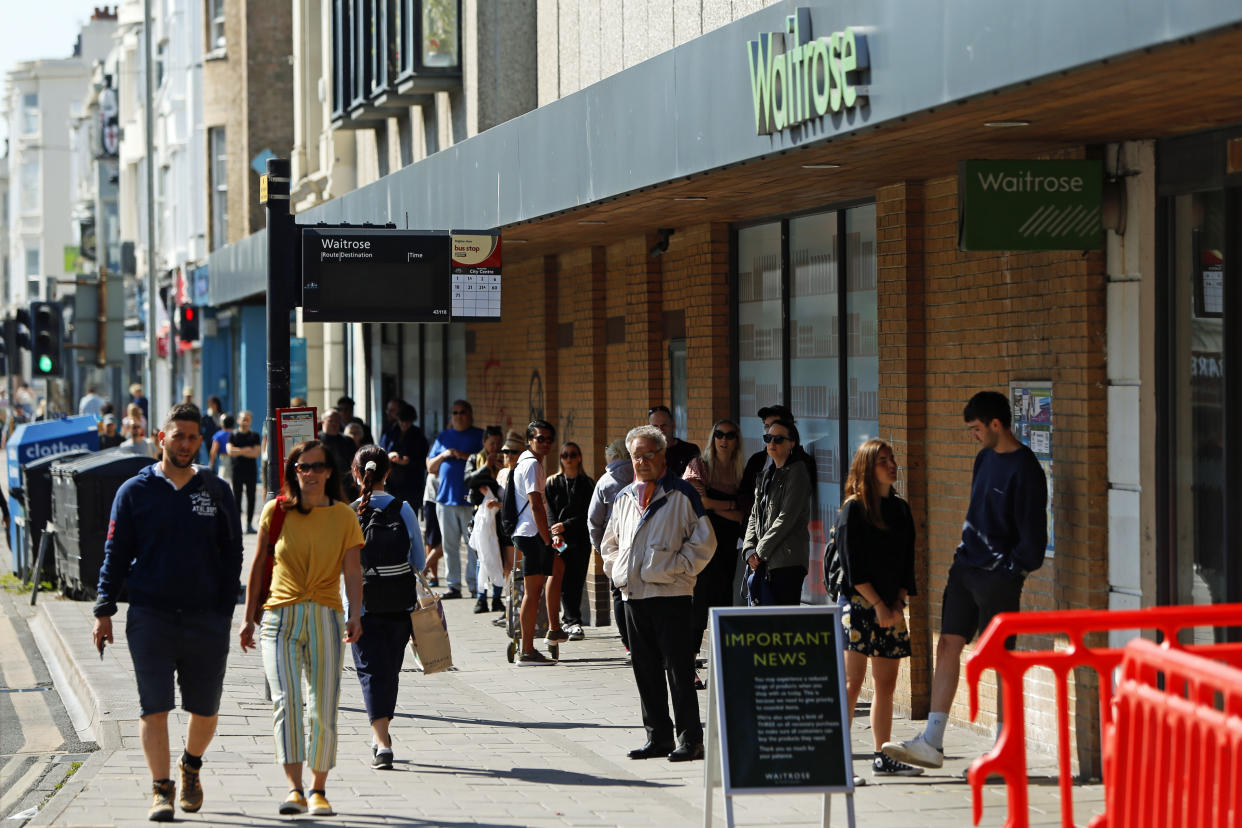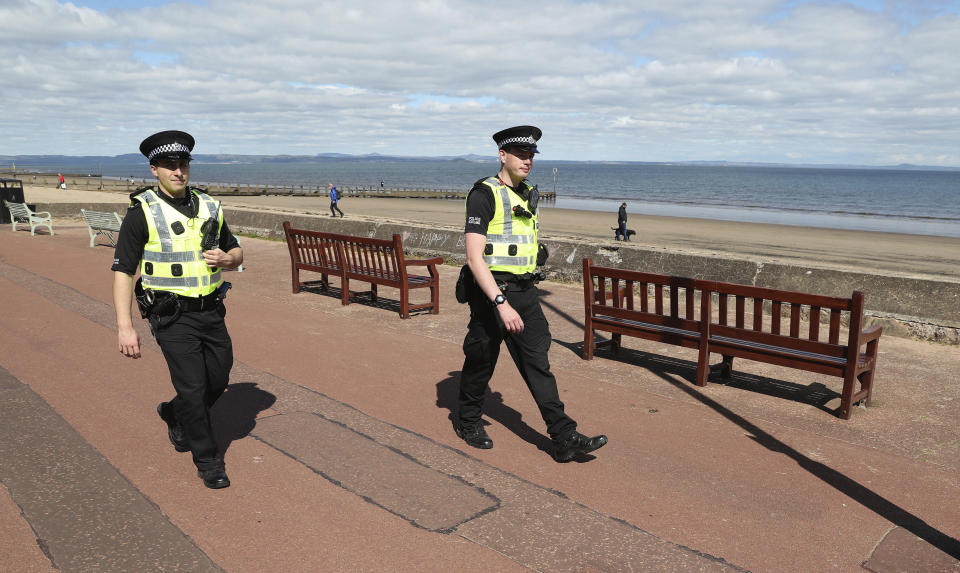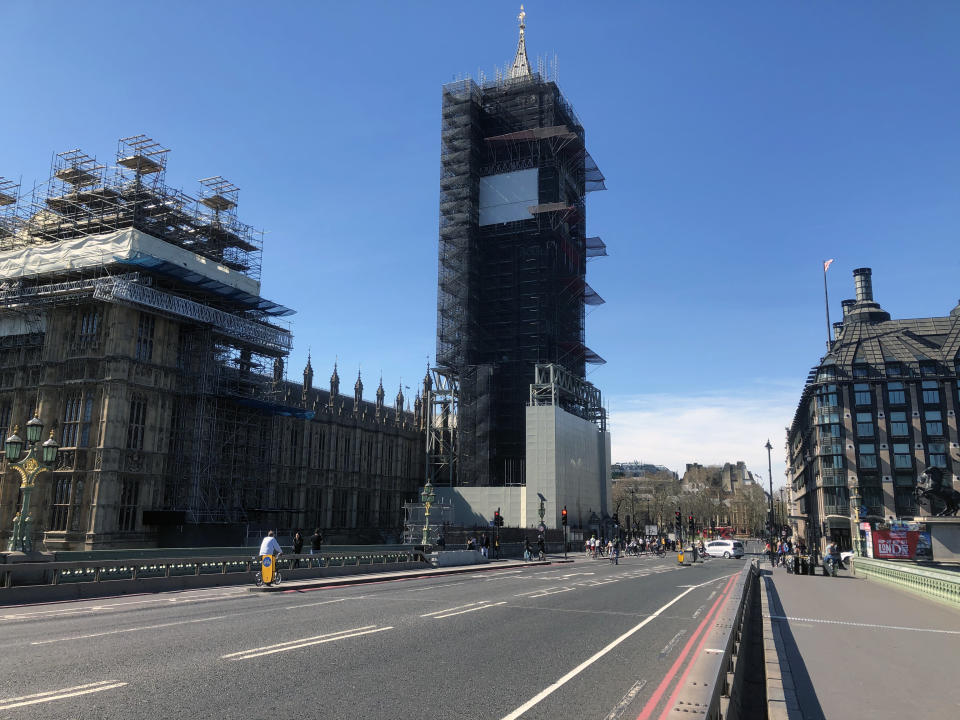Two-thirds of Brits would feel uncomfortable at mass gatherings, new poll reveals

Two-thirds of Britons would feel uncomfortable attending large public gatherings, like sports events or concerts after the UK’s coronavirus lockdown measures are eased, a new poll suggests.
The UK is in its sixth week of social distancing restrictions, with the government announcing on April 17 that measures will be kept in place for “at least” another three weeks, with a SAGE review set for May 7.
However, a recent survey conducted by Ipsos Mori suggests 61% of Britons would feel uncomfortable carrying out activities such as going to bars or restaurants or using public transport if lockdown is eased.
The survey, based on the results of 1,066 British adults aged 18-75 online between April 24 and 27, showed it is young people who are most at ease with going to bars and restaurants, with 36% of 18-34-year olds saying they would feel comfortable doing so.

Meanwhile, only 22% of those aged between 55-75 would be comfortable doing daily activities, suggesting growing a sense of nervousness when social distancing measures are relaxed.
Latest coronavirus news, updates and advice
Live: Follow all the latest updates from the UK and around the world
Fact-checker: The number of COVID-19 cases in your local area
6 charts and maps that explain how coronavirus is spreading
And while 3 in 10 - or 29% - feel comfortable going out to eat and drink, only 21% would be happy to use public transport to get there.
Around half are comfortable when it comes to shopping; 51% would be at ease with shopping in a supermarket while 49% are happy to go to other shops. However, a further 43% say they will feel uncomfortable shopping in other shops.
Keiran Pedley, Research Director at Ipsos Mori said: “The public are looking forward to seeing family members again in person and a clear majority are comfortable doing so. However, there is clear unease at other consequences of the lockdown ending.
“In particular, clear majorities of Britons are nervous about using public transport again or going to bars, restaurants or live music and sporting events. These numbers suggest that it will take some time for parts of the British economy to return to any semblance of normality, even after lockdown has ended.
The polling comes as Professor Sir David Spiegelhalter, of Cambridge University, told BBC Radio 4’s Today programme that the government’s stay at home advice has been “slightly too successful”.

He said: “It’s much harder to frighten to people to stay at home than it is to reassure them they can go out again. Maybe our whole campaign has been, if anything, slightly too successful.”
Sir David also warned against taking a “Eurovision approach” and making “naive comparisons” in contrasting the UK with other countries’ COVID-19 deaths.
“I think it’s too early to tell our exact place in the league table,” he continued.
“My article was arguing against this almost Eurovision approach of trying to say who’s top, who’s second and so on. It’s just not appropriate to do at all.
“There are so many variabilities about how people record COVID deaths – even what the correct metric is for measuring the impact of the epidemic – that to start saying we’re going to be worse or whatever is completely inappropriate.”
Boris Johnson suggested measures to ease the current coronavirus lockdown, which are yet to be announced, could include wearing masks.
Coronavirus: what happened today
Click here to sign up to the latest news, advice and information with our daily Catch-up newsletter

 Yahoo News
Yahoo News 

